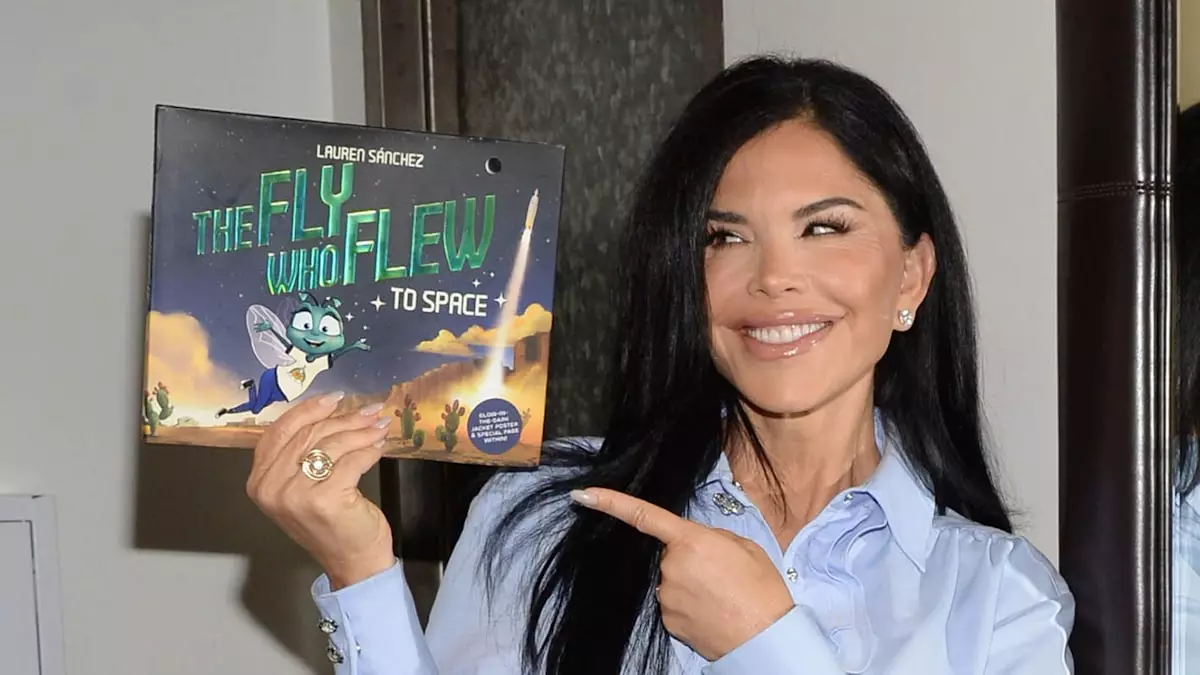In a surprising turn of events, Lauren Sanchez, widely recognized as Jeff Bezos’ fiancée, is embroiled in a contentious lawsuit that raises questions of creativity and originality in children’s literature. The allegation comes from Alanna Zabel, a former yoga instructor who claims to have worked with Sanchez from 2007 to 2010. Zabel asserts that Sanchez’s latest book, “A Fly Who Flew to Space,” bears striking similarities to her own unpublished manuscript for “Dharma Kitty Goes to Mars.” This situation not only highlights the competitive nature of the literary world but also brings forth deeper issues regarding authenticity and integrity among individuals in creative fields.
Zabel’s court documents, which have garnered attention from media outlets like TMZ, claim that Sanchez’s book is over 60% similar in content to her own idea. Additionally, Zabel accuses Sanchez of “betrayal and theft,” alleging that during their time working together, Sanchez exhibited “continual and outrageous acts of jealousy.” While the specifics of these alleged acts have not been detailed in the lawsuit, the very nature of these accusations raises eyebrows—pointing to potential underlying tensions during their former professional relationship. Zabel’s claims extend beyond intellectual property, as she further asserts that Sanchez’s actions have inflicted severe emotional distress.
Interestingly, this situation is multifaceted and speaks volumes about how personal relationships can intersect with professional endeavors. Zabel appears to suggest that Sanchez not only drew inspiration from her but also aspired to emulate her persona: that of a dedicated, free-spirited yoga instructor committed to public service. Such character aspirations, if proven, could complicate the narrative of artistic inspiration versus outright theft.
The Impact of Creative Competition
In today’s fast-paced, competitive environment, the quest for originality can become a double-edged sword. With countless authors and creators vying for recognition, lines can blur between inspiration and appropriation. This case serves as a sobering reminder of how easily these boundaries can be crossed when personal interactions intertwine with professional ambition.
While Sanchez is currently on a promotional tour for her book, which was released on September 10, it is vital to also recognize the emotional narratives that accompany such creative efforts. Sanchez has shared her journey with dyslexia, a motif that resonates through her children’s book, encompassing themes of resilience and overcoming self-doubt. Her ability to connect these personal experiences to her work adds depth but also complicates this legal battle, as creativity often stems from a place of vulnerability.
Public reaction to this lawsuit has been varied. Fans of Sanchez often admire her for her artistic pursuits and her connection to Bezos. Conversely, critics caution against any form of cultural appropriation, particularly in the realm of children’s literature, where the demographic is impressionable and deserves genuine narratives. Zabel’s call to action on Instagram, urging followers to “buy the original,” has amplified discussions about the nature of originality in storytelling. This form of public engagement hints at deeper societal discourses around intellectual property rights in a digital age.
Despite the turmoil, Sanchez’s supporters remain steadfast. They argue that creative ideas are often inspired by multiple sources, leading to the inherent difficulty in claiming exclusive ownership over concepts that can resonate universally. The lawsuit may ultimately test whether notions of inspiration can withstand judicial scrutiny.
A Broader Reflection
As this case unfolds, it serves as an important focal point for broader discussions surrounding ethics in creativity. How can we maintain integrity within artistic pursuits while fostering an environment that encourages innovation? The convergence of personal stories and professional endeavors calls for a reevaluation of the frameworks through which we understand and assess creativity.
The outcome of this legal battle remains uncertain, yet it undoubtedly raises compelling questions. Whether Sanchez’s work was derivative or genuinely inspired will likely hinge not only on legal definitions of intellectual property but also on public sentiment and the complex nature of creative expression. The stakes are high, not just for Sanchez and Zabel, but for all creators navigating an increasingly complicated landscape of originality and authorship.

Leave a Reply